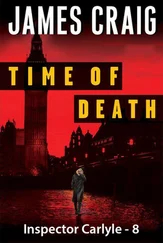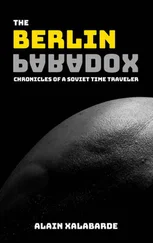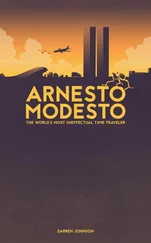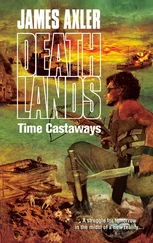James Gleick - Time Travel
Здесь есть возможность читать онлайн «James Gleick - Time Travel» — ознакомительный отрывок электронной книги совершенно бесплатно, а после прочтения отрывка купить полную версию. В некоторых случаях можно слушать аудио, скачать через торрент в формате fb2 и присутствует краткое содержание. Год выпуска: 2016, Издательство: Knopf Doubleday Publishing Group, Жанр: Старинная литература, на английском языке. Описание произведения, (предисловие) а так же отзывы посетителей доступны на портале библиотеки ЛибКат.
- Название:Time Travel
- Автор:
- Издательство:Knopf Doubleday Publishing Group
- Жанр:
- Год:2016
- ISBN:нет данных
- Рейтинг книги:5 / 5. Голосов: 1
-
Избранное:Добавить в избранное
- Отзывы:
-
Ваша оценка:
- 100
- 1
- 2
- 3
- 4
- 5
Time Travel: краткое содержание, описание и аннотация
Предлагаем к чтению аннотацию, описание, краткое содержание или предисловие (зависит от того, что написал сам автор книги «Time Travel»). Если вы не нашли необходимую информацию о книге — напишите в комментариях, мы постараемся отыскать её.
Time Travel — читать онлайн ознакомительный отрывок
Ниже представлен текст книги, разбитый по страницам. Система сохранения места последней прочитанной страницы, позволяет с удобством читать онлайн бесплатно книгу «Time Travel», без необходимости каждый раз заново искать на чём Вы остановились. Поставьте закладку, и сможете в любой момент перейти на страницу, на которой закончили чтение.
Интервал:
Закладка:
Borges reminds us that Schopenhauer asserted that life and dreams are pages from the same book. To read them in their proper order is to live, but to browse among them is to dream.
The twentieth century gave storytelling a roisterous temporal complexity like nothing that had been seen before. We don’t have enough tenses. Or rather, we don’t have names for all the tenses we create. *3“In what was to have been the future”—that simple clause is the opening of Madeleine Thien’s novel Certainty. Proust lines a temporal path with mirrors:
Sometimes passing in front of the hotel he remembered the rainy days when he used to bring his nursemaid that far, on a pilgrimage. But he remembered them without the melancholy that he then thought he would surely some day savor on feeling that he no longer loved her. For this melancholy, projected in anticipation prior to the indifference that lay ahead, came from his love. And this love existed no more.
Memories of anticipation, anticipation of memories. To make sense of the time loops narratologists draw symbolic diagrams. We may leave the details to the technicians and savor the new possibilities. Mixing memory and desire. The point is that for novelists as much as for physicists the timescape began to replace the landscape. The church of Marcel’s childhood is, for him, “an edifice occupying a space with, so to speak, four dimensions—the fourth being Time—extending over the centuries its nave which, from bay to bay, from chapel to chapel, seemed to vanquish and penetrate not only a few yards but epoch after epoch from which it emerged victorious.” The other great modernists—especially Joyce and Woolf—likewise made time their canvas and their subject. For all of them, Phyllis Rose has observed, “the prose line wandered in time and space, with any moment in the present acting as a kind of diving platform offering access to a lake of memory, anticipation, and association.” Storytelling is unchronological. It is anachronistic. If you are Proust, the narrative of life blends into the life: “life being so unchronological, so anachronistic in its disordering of our days.” The narrative itself is the time machine, and memory is the fuel.
Like H. G. Wells, Proust absorbed the new geology. He digs in his own buried strata: “All these memories added to one another now formed a single mass, but one could still distinguish between them—between the oldest, and those that were more recent, born of a fragrance, and then those that were only memories belonging to another person from whom I had learned them—if not fissures, if not true faults, at least that veining, that variegation of coloring, which in certain rocks, in certain marbles, reveal differences in origin, in age, in ‘formation.’ ” We might criticize Proust’s view of memory as merely poetic if our modern neuroscientists had settled on a more authoritative model of how memory works, but they have not. Even with the example of computer storage to draw on, even with our detailed neuroanatomies of the hippocampus and the amygdala, no one can really explain how memories are formed and retrieved. Nor can anyone explain away Proust’s paradoxical contention: that the past cannot truly be recovered by searching our memories, by interrogating them, by rewinding the film or reaching back into the drawer; rather, that the essence of the past, when it comes to us at all, comes unbidden.
He invented the term “involuntary memory” for this. He warned: “It is a waste of effort for us to try to summon it, all the exertions of our intelligence are useless. The past is hidden outside the realm of our intelligence and beyond its reach.” We may think, peering naïvely into our minds, that we have formed our memories and may now call them up for leisurely inspection, but no, the memory we reach for, the memory of the conscious will, is an illusion. “The information it gives about the past preserves nothing of the past itself.” Our intelligence rewrites and rewrites again the story it is trying to recall. “The mind feels overtaken by itself; when it, the seeker, is also the obscure country where it must seek.” Involuntary memory is the grail for which we may not quest. We don’t find it; it finds us. It may lie hidden perchance in a material object—“in the sensation that this material object would give us”—for example, oh, the taste of a petite madeleine dipped in lime-blossom tea. It may come in the liminal space between waking and sleep. “Then the confusion among the disordered worlds will be complete, the magic armchair will send him traveling at top speed through time and space.”
All things considered, it may seem surprising that it took psychologists sixty more years to define this phenomenon and give it the name “mental time travel,” but they have done that now. A neuroscientist in Canada, Endel Tulving, coined the term for what he called “episodic memory” in the 1970s and 1980s. “Remembering, for the rememberer, is mental time travel,” he wrote, “a sort of reliving of something that happened in the past.” Or the future, naturally. (It’s a poor sort of memory that only works backward, remember.) It’s MTT, for short, and researchers debate whether it is a uniquely human capability or whether monkeys and birds may also revisit their pasts and project themselves into the future. A more recent definition by two cognitive scientists: “Mental time travel is the ability to mentally project oneself backward in time to relive past experiences and forward in time to pre-live possible future experiences. Previous work has focused on MTT in its voluntary form. Here, we introduce the notion of involuntary MTT.” In other words, “involuntary (spontaneous) mental time travel into the past and future.” No mention of madeleines, though.
Everyone seems to agree that our imaginations liberate us in the time dimension, even if we can’t have a Wellsian time machine. But not Samuel Beckett. The young Dubliner, who had not yet written any of his novels or plays, studied Proust in the summer of 1930 when he was at the École Normale in Paris, in order “to examine in the first place that double-headed monster of damnation and salvation—Time.” Freedom is not what he saw. In Proust’s world he found only victims and prisoners. Not for Sam “our pernicious and incurable optimism,” “our smug will to live,” averting our eyes from the bitter fate that lies ahead. We are like organisms of two dimensions, he suggests, like the inhabitants of Flatland, who suddenly discover a third dimension, height. The discovery avails them nothing. They cannot travel in their new dimension. Nor can we. Beckett says:
There is no escape from the hours and the days. Neither from to-morrow nor from yesterday. There is no escape from yesterday because yesterday has deformed us, or been deformed by us….Yesterday is not a milestone that has been passed, but a drystone on the beaten track of the years, and irremediably part of us, heavy and dangerous.
Beckett will leave to others the pleasures of time travel. For him time is poison. It is a cancer.
At the best, all that is realized in Time (all Time produce), whether in Art or Life, can only be possessed successively, by a series of partial annexations—and never integrally and at once.
At least he is consistent. We can wait, that’s all.
VLADIMIR: But you say we were here yesterday.
ESTRAGON: I may be mistaken.
—
ANY BOOK—bound and sewn, with a beginning, middle, and end—resembles the Universe Rigid. It has a finality lacking in real life, where we can’t expect all the threads to tie together when we’re done. The novelist Ali Smith says that books are “tangible pieces of time in our hands.” You can hold them, you can experience them, but you cannot change them. Except that you can and do: the book is nothing—inert, waiting—until someone is reading it, and then the reader, too, becomes a player in the story. Reading Proust entangles your memories, your desires, with Marcel’s. Smith retranslates Heraclitus: “You can’t step into the same story twice.” Wherever the reader is, on whatever page, the story has a past, which is gone, and a future, which has not yet come.
Читать дальшеИнтервал:
Закладка:
Похожие книги на «Time Travel»
Представляем Вашему вниманию похожие книги на «Time Travel» списком для выбора. Мы отобрали схожую по названию и смыслу литературу в надежде предоставить читателям больше вариантов отыскать новые, интересные, ещё непрочитанные произведения.
Обсуждение, отзывы о книге «Time Travel» и просто собственные мнения читателей. Оставьте ваши комментарии, напишите, что Вы думаете о произведении, его смысле или главных героях. Укажите что конкретно понравилось, а что нет, и почему Вы так считаете.












